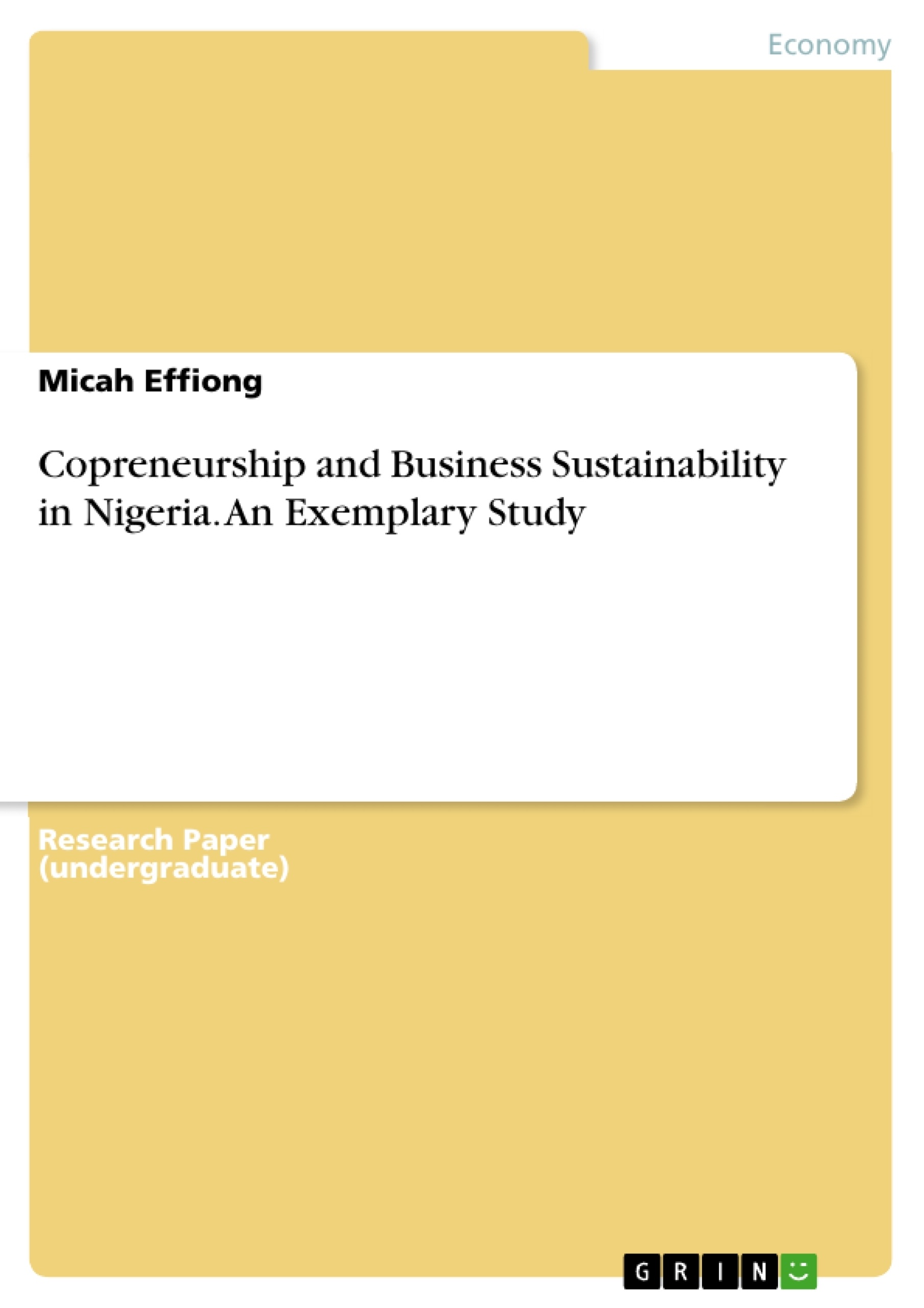This study examines the relationship between copreneurship and business sustainability in Nigeria.
In specific, the following objectives are included: to examine the relationship between spousal commitment and business profit in small scale business in Nigeria; to investigate on the relationship between spousal commitment and sales growth in small scale business in Nigeria.
The population for the study will consists of three hundred and fifty (58) copreneurs in Uyo metropolis, Akwa Ibom State with accessible respondents consisting of small scale business such as catering/decoration services, super markets/stores, beading/makeup services, restaurants/drinking centres in Uyo metropolis, Akwa Ibom State, Nigeria. The study used purposive sampling techniques for the study.
The study utilizes the Pearson Product Moment Correlation (PPMC) in which the Scientific Package for Social Sciences (SPSS) package was used to analyze the data collected. The result of the findings from the both variables shows that there is a positive correlation between copreneurship and business sustainability. Hence, it is posited that high levels of spousal commitment lead to more supportive relationships that improve the business success.
Table of Contents
ABSTRACT
CHAPTER ONE
Introduction
1.1 Background to the Study
1.2 Statement of the problem
1.3 Objectives of the Study
1.4 Research Questions
1.5 Research Hypotheses
1.6 Significance of the Study
1.7 Scope and Limitations of the Study
1.8 Definition of Key Terms
CHAPTER TWO: REVIEW OF RELATED LITERATURE
Introduction
2.1 CONCEPTUAL FRAMEWORK
2.1.1 Brief Historical Overview of Copreneurship
2.1.2 Concept of Copreneurship
2.1.3 Benefits associating with Copreneurship
2.1.4 Factors Motivating Start-up Copreneurship Businesses
2.1.5 Measures of Copreneurship
2.1.6 Overview of Sustainability
2.1.7 Concept of Business Sustainability
2.1.8 Dimensions of Business Sustainability
2.2 Conceptual Model
2.3 Theoretical Framework
2.3.1 Maslow’s Hierarchy of Needs Motivation Theory
2.3.2 Resource-based View Theory
2.4 Empirical Review
CHAPTER THREE: RESEARCH METHODOLOGY
3.1 Introduction
3.2 Research Design
3.3 Population of the Study
3.4 Sampling/ Sampling Technique
3.5 Instrumentation
3.6 Validity and Instrument
3.7 Reliability of the Instrument
3.8 Method of Data Collection
3.9 Method of Data Analysis
3.10 Decision Rule Regarding Testing of the Hypotheses
CHAPTER FOUR:DATA PRESENTATION, ANALYSIS AND DISCUSSION OF FINDINGS
4.1 Introduction
4.2 Presentation of Data
4.3 Testing of Hypotheses
4.4 Discussion of Finding
CHAPTER FIVESUMMARY, CONCLUSION AND RECOMMENDATION
Introduction
5.1 Summary
5.2 Conclusions
5.3 Recommendation
5.4 Suggestion for Further Study
References
- Citation du texte
- Micah Effiong (Auteur), 2019, Copreneurship and Business Sustainability in Nigeria. An Exemplary Study, Munich, GRIN Verlag, https://www.grin.com/document/510317
-

-

-

-
Téléchargez vos propres textes! Gagnez de l'argent et un iPhone X. -

-
Téléchargez vos propres textes! Gagnez de l'argent et un iPhone X. -

-
Téléchargez vos propres textes! Gagnez de l'argent et un iPhone X. -

-
Téléchargez vos propres textes! Gagnez de l'argent et un iPhone X. -

-
Téléchargez vos propres textes! Gagnez de l'argent et un iPhone X. -

-
Téléchargez vos propres textes! Gagnez de l'argent et un iPhone X. -

-
Téléchargez vos propres textes! Gagnez de l'argent et un iPhone X. -

-
Téléchargez vos propres textes! Gagnez de l'argent et un iPhone X. -

-
Téléchargez vos propres textes! Gagnez de l'argent et un iPhone X. -

-
Téléchargez vos propres textes! Gagnez de l'argent et un iPhone X. -

-
Téléchargez vos propres textes! Gagnez de l'argent et un iPhone X.

